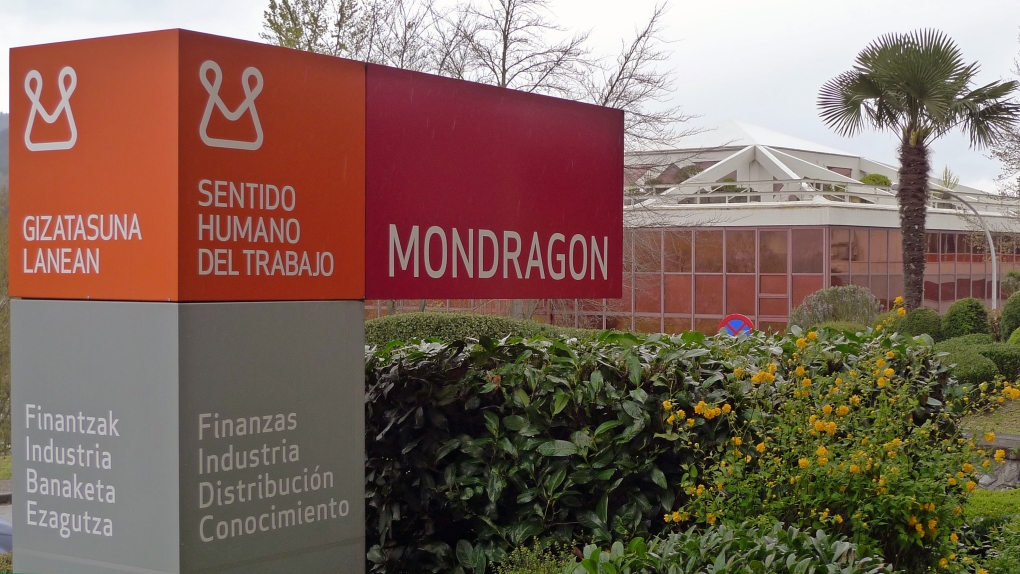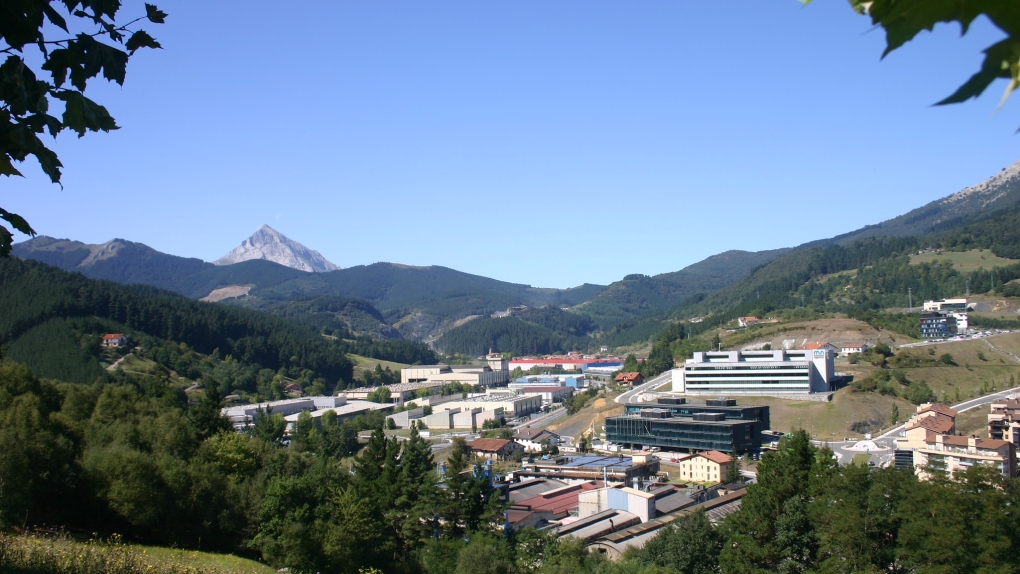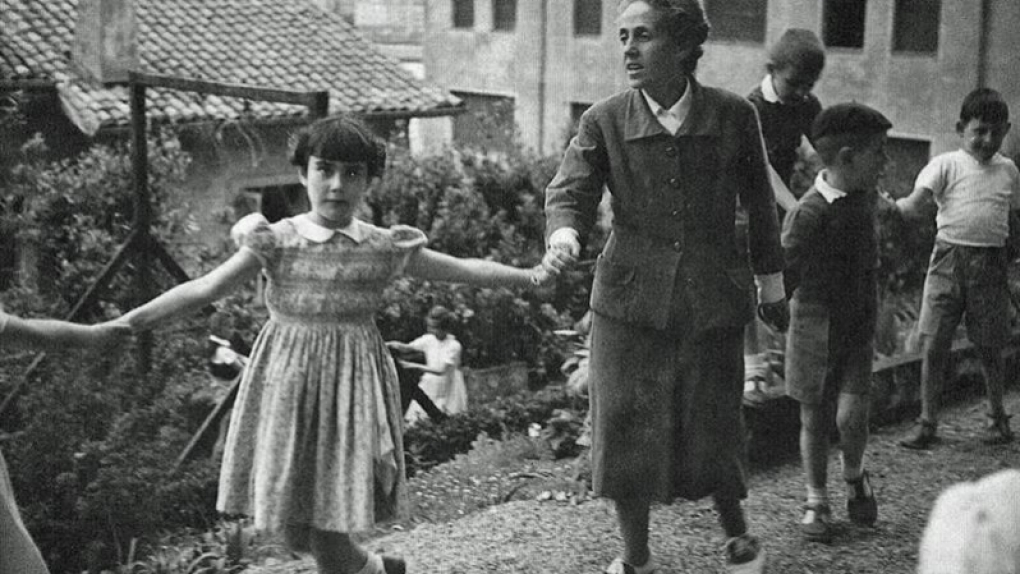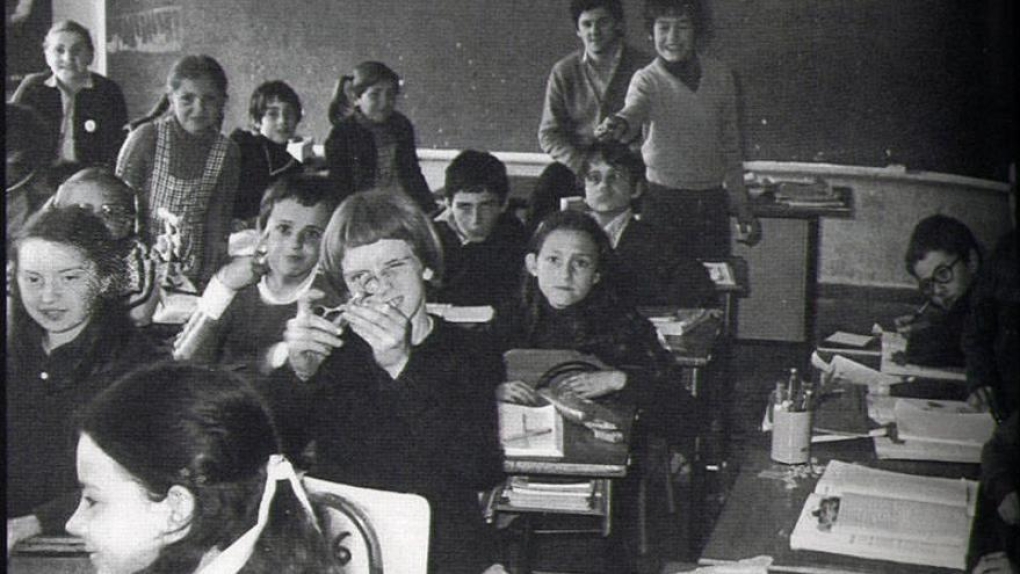To understand how collective action and a shared value system have transformed Basque society, we dive into two key areas of the cooperative phenomenon in the Basque Country: the Mondragon group and the ikastola movement.
From auzolan to cooperativism (and vice versa): a very Basque way of showing ourselves to the world
30 Jul 2024
They’re convenient, energy-efficient and timesaving, and can be used to prepare all kinds of dishes by simply adjusting the cooking time. Many of us have a long-standing relationship with the pressure cooker. While younger generations may consider it a piece of junk nowadays, in the 1980s this kitchen tool was a futuristic ally in the Basque Country. It had an element of surprise – almost magical. On the way home from school, the whistles coming from pressure cookers, as we climbed up the stairs to our flats, would tell us that lunch (stewed meat, purée, lentils…) was ready to be served. It could be almost anything: a delicious surprise.
The first pressure cookers were said to be made of brass, but this new appliance, the Rapid Express, was made of aluminium and stainless steel. The brand: Fagor Electrodomésticos., the first company of the giant Mondragon cooperative and its flagship for decades, Fagor, was launched on 14 April 1956 under the name of Talleres Ulgor. Its founders (Luis Usatorre, Jesús Larrañaga, Alfonso Gorroñogoitia, José María Ormaechea and Javier Ortubay) set up an electrical appliance manufacturing division the following year, which gained momentum in the 1960s through an innovative, solidarity-based, inclusive model. On the role of women, for example, José María Arizmendiarrieta, the father of the Basque co-operative movement and mentor to those young students who began to revolutionise the economy, argued: "It is a significant mistake that women, in general, do not have access to professional education, nor do they participate in retraining and lifelong learning. This exclusion leads to professions that currently deem them unsuitable."
As early as 1964, the founders of Mondragon had a clear collective vision and a commitment to working together based on the co-operative model. " We need to consider establishing a series of institutions that will support our cooperative goals and initiative – institutions that align with our social and economic vision. The cooperative movement will be a fleeting phenomenon unless it is actively integrated and fostered within society as a whole, firmly establishing its roots in education and social and economic relationships."
It did not happen overnight. The co-operative paradigm, in which the members are worker-owners, has become deeply embedded and a successful model in the Basque Country. Collaboration has flourished across various sectors of Basque society: the ikastolas, for example, were born when a group of parents set up a unique model of educational institution under the cooperative formula. The feeling of community and a shared project based on solidarity are some of the main pillars of the ikastolas [schools in the Basque Country that primarily teach in the Basque language].
Mondragon, at the top
Sixty-six years after its inception, the modest cooperative that laid the foundation for Fagor reached new heights with a fresh perspective. Today, the network spans 150 countries. Mondragon is the largest cooperative in the world, the leading industrial powerhouse in the Basque Country and the tenth largest in Spain, with around 70,000 workers spread over several continents. But how did we get here? What accounts for the strong presence of this cooperative vision in the Basque Country?
We may first want to look back in the rear-view mirror of history. "Cooperativism can be interpreted as a modern form of auzolan [Basque practice of neighbours periodically joining together to work on shared projects]. Not only does it promote collective action, but the structure of Basque cooperatives – particularly Mondragon – also functions based on the sovereignty of each member entity. It is a replica of the self-sufficiency of the baserri [Basque name for the traditional Basque farmhouse], which only joins forces with others to do what one cannot do by oneself," explains Gorka Espiau, director of the Aguirre Lehendakaria Center (ALC) Foundation, which has been operating as a laboratory for social innovation in a dozen countries since 2013.
Collective action and resilience
The concept of auzolan is key to understanding the different "narratives linked to Basque transformation," according to Espiau. "It is interpreted as the capacity for collective action and resilience that the Basque people have demonstrated throughout history. Like all narratives, it is a cultural construct that combines concrete and tangible elements (system of communal organisation in the farmsteads, or baserris) with intangible and qualitative elements (system of values). This cultural construct helps us to interpret reality in a certain way, and by associating ourselves with its values, we make decisions and behave in a way that is coherent with this imaginary. The imaginary ends up becoming reality," he adds.
Xabier Barandiaran holds a PhD in Sociology and is a lecturer in the Department of Social and Human Sciences at the University of Deusto. He explains that the term auzolan "is based on the community" and is related to "the individual´s responsibility to the community and their service to others, fostering solidarity and forms of social organisation that prioritize community interests over individual ones. The individualism generated by consumer societies is a direct affront to the auzolan culture," he stresses, offering a practical example: "When a community of neighbours decides to clean up the area around the river that runs through the municipality, they are carrying out a cooperative action and are generating a public good. That is auzolan."
He agrees with Espiau in highlighting the interconnectedness between auzolan and cooperativism. "The Basque co-operative philosophy," Barandiaran assures us, "is directly linked to auzolan, with shared decisions or co-operation to develop a business project that is at the service of a collective or a community over and above individual interests. We choose to present ourselves to the world in this manner, and we prefer to be seen this way. Faced with individualism, collective action," says Espiau. "Our lie is that the Basques have a greater capacity for collective action than other people," he adds.
A collaborative grassroots movement
"The current level of development and social capital in the Basque Country cannot be understood without auzolan," says Barandiaran. "There are countless examples of projects done by auzolan; many ikastolas were built through auzolan; many fires and floods have been tackled thanks to auzolan; the cooperative movement promoted by Arizmendiarrieta is based on the values of auzolan," he adds. The book ‘El movimiento de las Ikastolas. Un pueblo en marcha. El modelo Ikastola (1960 – 2010)’ (‘The Ikastola movement. A people on the move. The Ikastola model’. Euskal Herriko Ikastolak – Euskaltzaindia, 2011) highlights the significance of the new educational model implemented in Basque education during the second half of the twentieth century. The ikastolas have their own model of education, an "advanced, progressive pedagogy", are based on the Basque curriculum, and committed to Basque-speaking education "with a strong multilingualism". This is how the Federation of Ikastolas defines the spirit of these educational centres throughout the Basque Country, currently made up of 114 ikastolas, 4,500 teachers, 500 workers, more than 50,000 pupils and "mothers and fathers with direct participation, the majority of whom are cooperative members".
Throughout the pages of the book, the concept of community and co-operation is a recurring theme. An example from the introduction: "If we look at the social history of the ikastolas, their ties with the history of Basque society are evident, in that they have emerged from the heart of the people and have acted in dialogue with the citizens. The ikastolas and Basque society are the subjects of the history of mutual support. Just as the social life of each moment has influenced the ikastolas, the trajectory of the ikastolas has been a permanent source of contributions for Euskal Herria". The "participatory and popular" nature of ikastolas is also analysed in the study estudio ‘El movimiento cooperativo de las ikastolas: su revisión conceptual desde la perspectiva de las empresas sociales’ (‘The ikastola co-operative movement: a conceptual review from the perspective of social enterprises’. Unai del Burgo García, 2013). The phenomenon of school co-operatives grew over time, covering all levels of education. The majority of ikastolas belong to the network of private schools that receive government funding and are required to follow the curriculum and regulations set by the government.
Originally, the prominent figure was the educator and activist Elbiria Zipitria (Zumaia, Gipuzkoa, 1906 – San Sebastian, 1982). Zipitria was one of the driving forces behind these schools during the long dark period of the Franco dictatorship in Spain (1939 to 1975). Using an avant-garde approach, she trained numerous teachers who then helped expand the network of ikastolas. She set up a school at her home at Fermín Calbetón number 26 in San Sebastián´s Old Town during the early years of the Franco dictatorship. This was regarded as the first ikastola of the post-war era. Zipitria is a leading figure in Basque education. Recently, the Denonartean publishing house released an illustrated book called ‘Elbira Zipitria andereñoa’ (‘Elbira Zipitria, schoolteacher’) and in 2022 the documentary ´Elbira´ took an in-depth look at the life of the Basque language activist. Additionally, the Etxepare Basque Institute co-sponsors the Elbira Zipitria Chair at McGill University in Montreal, Canada, "placing innovative cultural movements at the centre".
Zipitria helped found the Orixe ikastola in Donostia in 1968. Her words still resonate today in the voices of the community: “Txori bakoitzak bere abestia. / Herri bakoitzak bere hizkera: / euskaldunok euskara! / Guk ahal ditugun / hizkuntza gehienak ikasiko ditugu: / buruan hiru edo./ Baina bihotzean bakarra:/ gurea!”. (“Each bird, its own song / Each people, their own language: / The Basques, Euskara/ We’ll learn as many languages as we can: / In our heads about three / But in our hearts, only one: / Ours!”).




